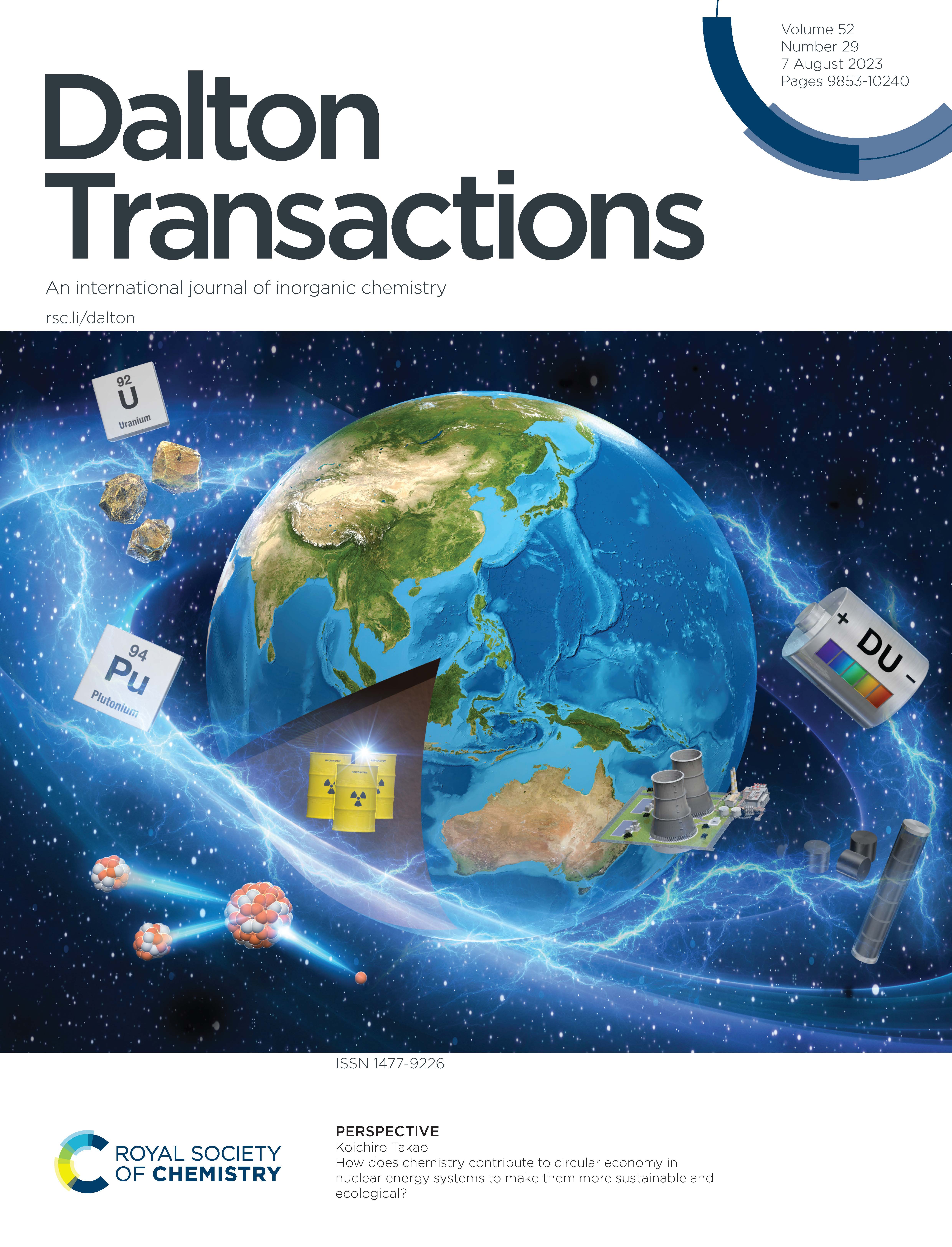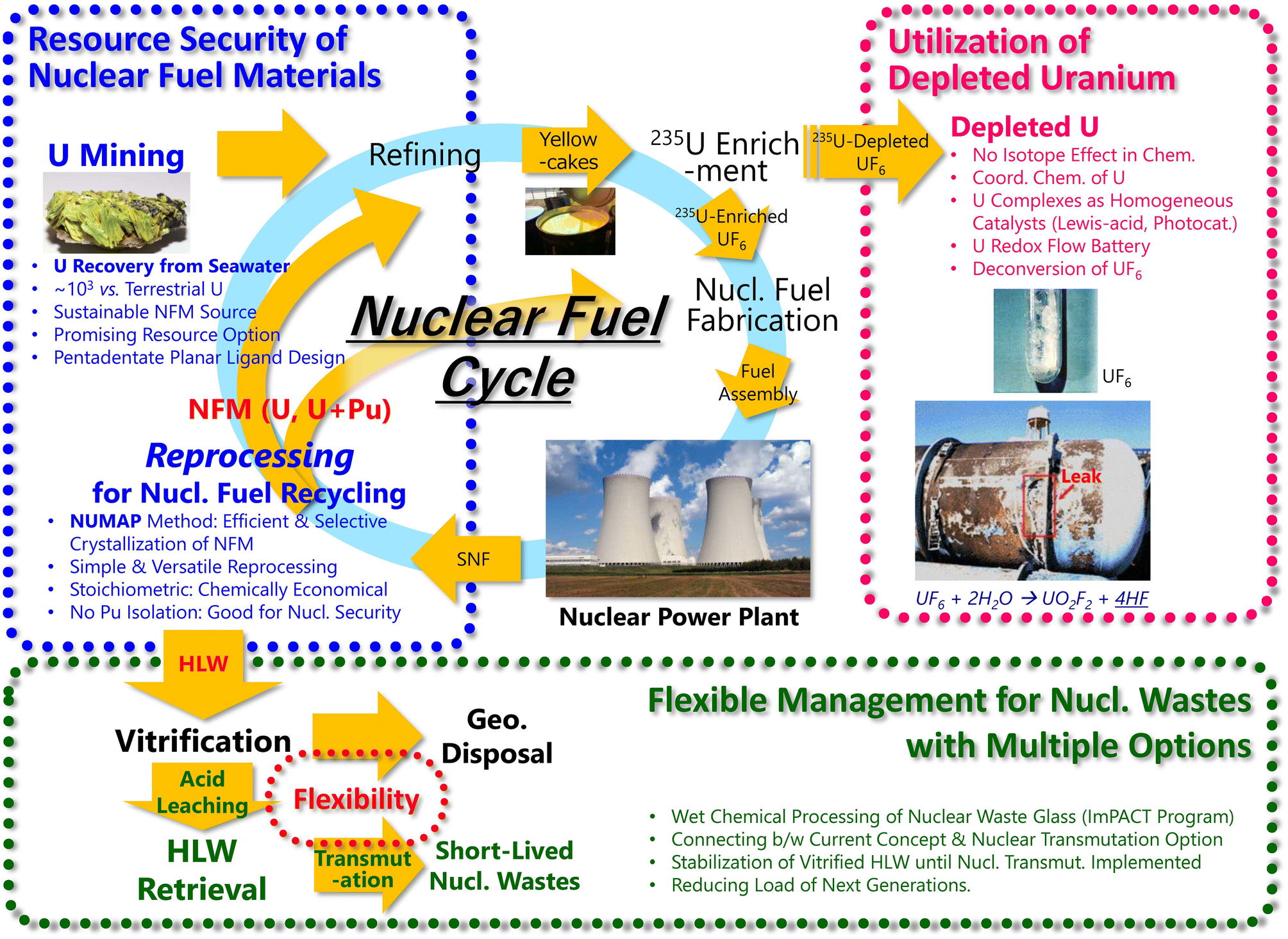Perspective Article "How does chemistry contribute to circular economy in nuclear energy systems to make them more sustainable and ecological?"
-Advocating Contribution and Relevance of Cutting-edge Inorganic Chemistry to Nuclear Fuel Cycle
2023.08.02
Highlights
Nuclear fuel recycling basically follows a concept of circular economy, while it actually suffers from several problems. This perspective discusses how chemistry works for resolving them as well as what task academic scientists should take on.
Summary
While one should be aware that its zero CO2 emission is actually achievable only when electric power is generated, nuclear power is one of the most viable and proven “carbon-free” energy sources to provide baseload electricity to the current energy-demanding society. Even after the power generation, the major part of spent nuclear fuels still consists of recyclable nuclear fuel materials such as U and Pu, promising circular economy of nuclear energy systems in principle. However, actual situations are not very simple due to the following issues: (1) resource security of nuclear fuel materials, (2) issues of depleted uranium, and (3) treatment and disposal of high-level radioactive wastes. In this Perspective, I discussed how chemistry can contribute to resolving these problems and what task academic research in fundamental chemistry should take on there.
This paper was published on August 7, 2023, as a Perspective in the peer-reviewed academic journal, Dalton Transactions, of the Royal Society of Chemistry. It also graced the cover of Volume 52, Issue 29. Additionally, it was selected for 2023 Frontier and Perspective articles and recognized as a Top 10% research in the field of inorganic chemistry, being chosen for the Dalton Transactions HOT Article Collection.


Reprinted with permission from Royal Society of Chemistry (Copyright 2023)
Reference
- Journal :
- Dalton Transactions
- Title :
- How does chemistry contribute to circular economy in nuclear energy systems to make them more sustainable and ecological?
- Authors :
- Koichiro Takao
- Affiliation :
- Laboratory for Zero-Carbon Energy, Institute of Innovative Research, Tokyo Institute of Technology, Japan
